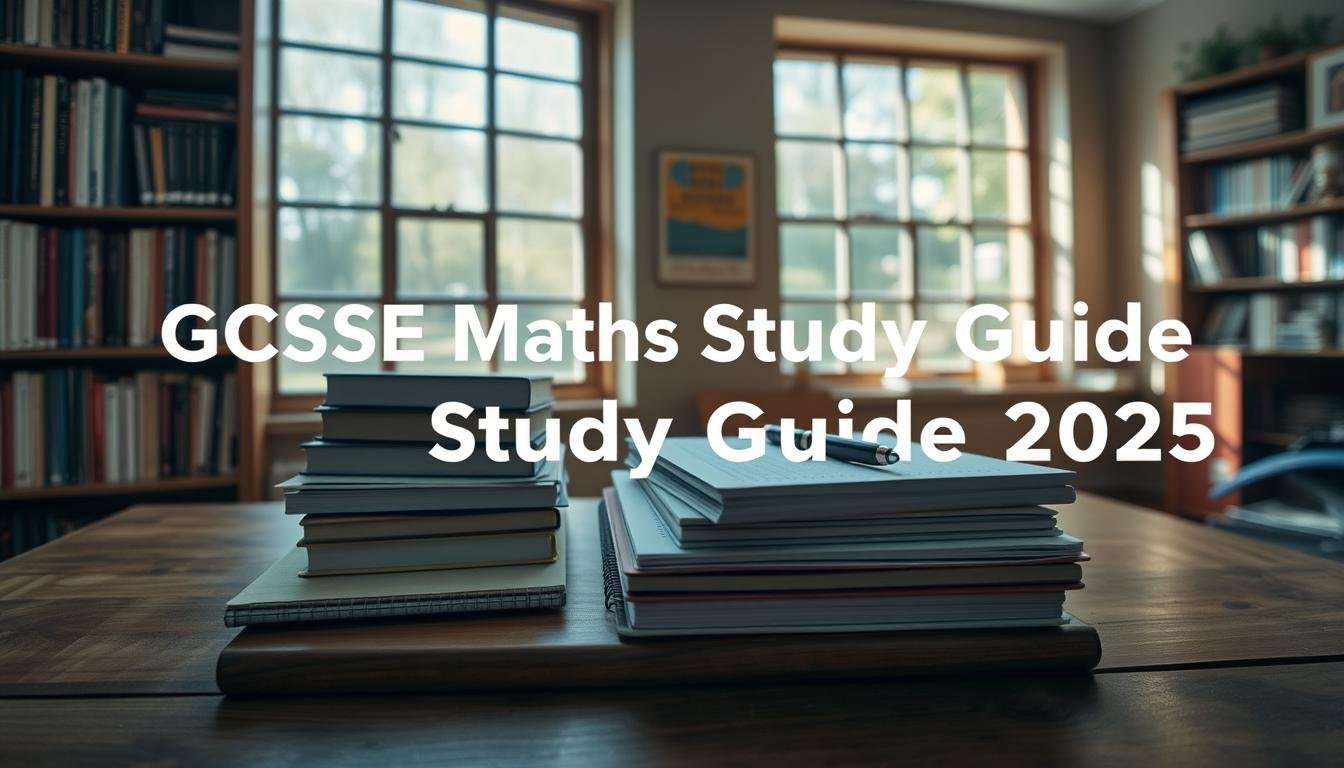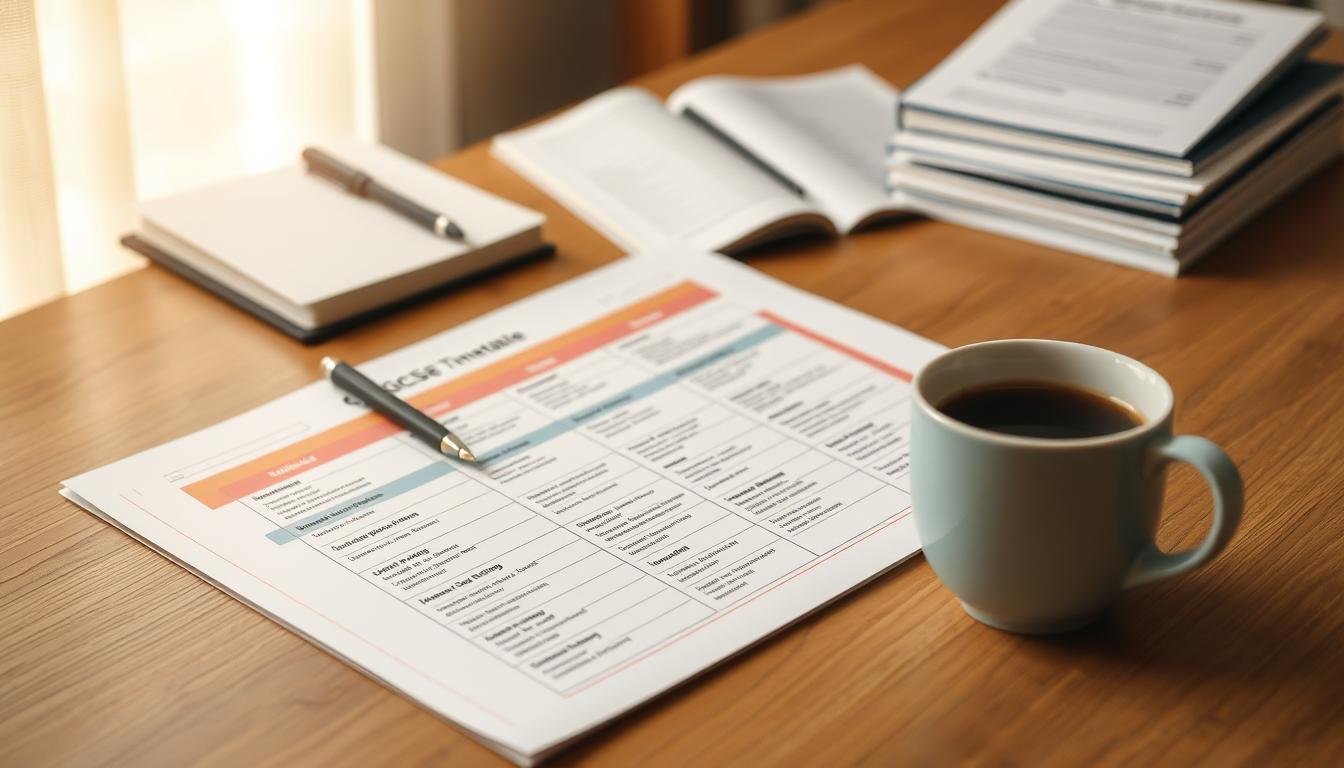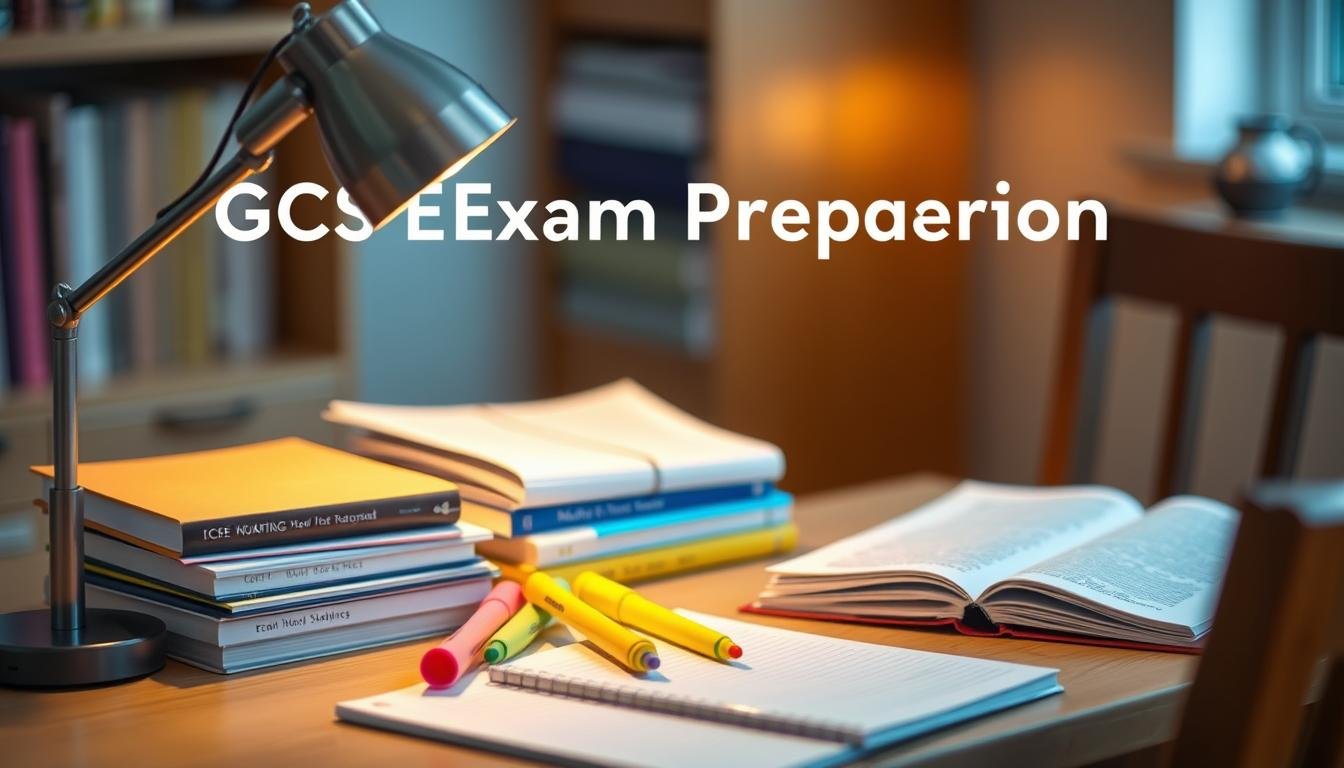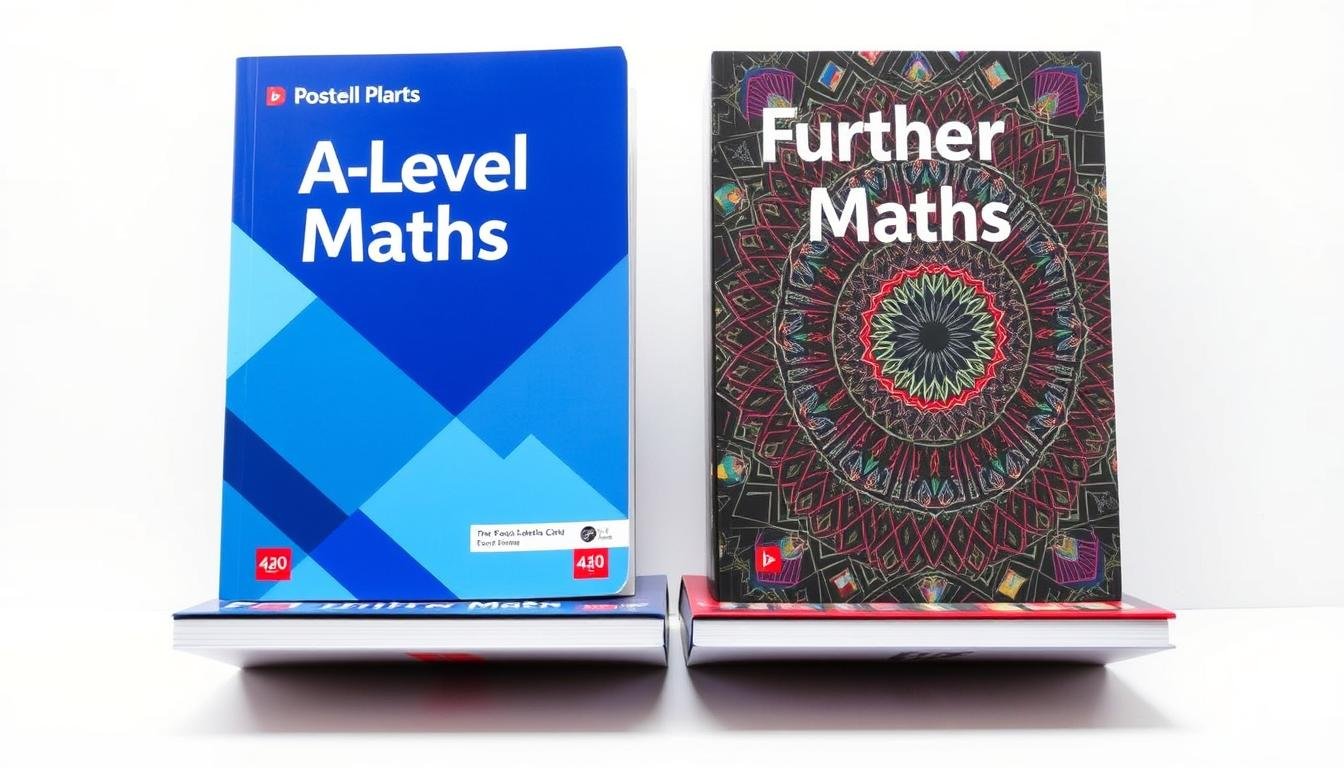As a student in England, Northern Ireland, Scotland, or Wales, you’re likely aware of the importance of being well-prepared for your GCSE Maths exam. With our comprehensive GCSE Maths Study Guide 2025, you can feel confident in your ability to tackle the exam.
Our study guides cover a range of mathematical skills necessary for success, providing you with gcse math prep tips and detailed notes to help you revise effectively for your exams, whether you’re taking GCSEs, Highers, or National 5 maths exams.
Key Takeaways
- Comprehensive coverage of mathematical skills necessary for GCSE Maths exams
- Detailed notes for effective revision
- Relevant study materials for students in England, Northern Ireland, Scotland, and Wales
- Tips for preparing for GCSE Maths exams
- Study guides available for various exam types, including GCSEs, Highers, and National 5
Understanding the GCSE Maths Curriculum for2025
Familiarizing yourself with the GCSE Maths curriculum for 2025 is the first step towards achieving your desired grade. The curriculum encompasses various topics, including number and algebra, geometry and measures, statistics, and probability. Understanding these components is essential for effective preparation.
Key Changes in the 2025 GCSE Maths Syllabus
The 2025 GCSE Maths syllabus includes several key changes that you need to be aware of. These changes are designed to assess your mathematical skills and knowledge more comprehensively. For instance, there is a greater emphasis on problem-solving and mathematical reasoning.
Examination Structure and Format
The examination structure for GCSE Maths in 2025 consists of multiple papers, each focusing on different aspects of the curriculum. You will be tested on your ability to apply mathematical concepts to solve problems. Understanding the format and content of these papers is crucial for your preparation.
Grading System Explained
The grading system for GCSE Maths in 2025 ranges from 1 to 9, with 9 being the highest grade. Your final grade will be determined by your performance across the different papers. It’s essential to understand how the grading system works to set realistic goals and develop effective GCSE math exam strategies.
Creating Your Personalized GCSE Maths Study Plan
A well-structured study plan is the foundation of effective GCSE Maths preparation. To create a plan that works for you, it’s essential to understand your current strengths and weaknesses, set achievable goals, and develop a study schedule that balances different math topics.
Assessing Your Current Knowledge and Skills
Begin by evaluating your current knowledge and skills in GCSE Maths. This step is crucial in identifying areas where you need to focus your efforts.
Self-Assessment Tests and Tools
Utilize self-assessment tests and online tools to gauge your understanding of various math concepts. These resources can help you pinpoint specific areas that require improvement. You can find gcse math help through online platforms that offer practice tests and assessments.
Identifying Strengths and Weaknesses
Once you’ve taken the self-assessment tests, identify your strengths and weaknesses. Focus on improving your weak areas while maintaining your strengths. This balanced approach will enhance your overall performance in GCSE Maths.
Setting Realistic Study Goals
Setting realistic study goals is vital to your success in GCSE Maths. Break down your long-term goals into smaller, manageable tasks to maintain a steady pace of progress.
When setting your goals, consider your current level of understanding, the time available before the exam, and the resources at your disposal. Make sure your goals are specific, measurable, achievable, relevant, and time-bound (SMART).
Developing a Weekly Study Schedule
A well-structured weekly study schedule is key to effective GCSE Maths revision. Allocate specific times for studying different math topics and stick to your schedule.
Balancing Different Math Topics
Ensure that your study schedule covers all the necessary math topics, including number and algebra, geometry, and statistics. Allocate time based on your strengths and weaknesses, giving more time to areas that need improvement.
Incorporating Regular Review Sessions
Regular review sessions are crucial for reinforcing your understanding of math concepts. Schedule regular review sessions to go over previously studied material, using gcse math revision techniques such as flashcards and practice quizzes.
By following these steps and creating a personalized study plan, you’ll be well on your way to achieving success in your GCSE Maths exam. Remember to stay consistent, be patient, and seek study techniques for gcse math that work best for you.
Essential GCSE Maths Topics You Must Master
GCSE Maths encompasses a range of critical topics that you must understand thoroughly to achieve success. The curriculum is designed to test your knowledge and application of various mathematical concepts.
Number and Algebra Fundamentals
Number and algebra are foundational elements of GCSE Maths. You need to be proficient in handling numbers, understanding place value, and performing arithmetic operations.
Key Formulas and Equations
Familiarize yourself with key formulas such as the quadratic formula, x = (-b ± √(b² – 4ac)) / 2a, and equations like the slope-intercept form, y = mx + c. These are crucial for solving algebra problems.
Common Problem Types
You will encounter various problem types, including solving quadratic equations, simplifying algebraic expressions, and using formulas to find unknowns. Practice these regularly to build confidence.
Geometry and Measures
Geometry involves understanding shapes, their properties, and measurements. You should be able to calculate perimeters, areas, and volumes of different shapes, as well as understand geometric theorems.
- Calculate the area and circumference of circles.
- Understand the properties of triangles and quadrilaterals.
- Apply trigonometry to solve problems involving right-angled triangles.
Statistics and Probability
Statistics and probability are critical components of GCSE Maths. You need to understand how to collect, analyze, and interpret data, as well as calculate probabilities.
Key areas to focus on include:
- Understanding mean, median, mode, and range.
- Interpreting charts and graphs.
- Calculating probabilities using different methods.
Higher Tier-Specific Topics
For Higher Tier students, there are additional topics that require attention, such as advanced algebra, further geometry, and complex statistics.
By mastering these essential topics, you will be well-prepared for your GCSE Maths exam. Focus on practicing a variety of problems and reviewing key concepts regularly.
Effective Study Techniques for GCSE Maths Success

To excel in GCSE Maths, it’s crucial to adopt effective study techniques that cater to your learning style. By doing so, you can enhance your understanding, retention, and application of mathematical concepts.
Active Learning Strategies
Active learning is a powerful approach to studying GCSE Maths. It involves engaging with the material beyond just reading it. You can achieve this by:
- Creating concept maps to visualize relationships between different mathematical concepts.
- Participating in study groups to discuss and solve problems together.
- Teaching someone else what you’ve learned to reinforce your understanding.
Problem-Solving Approaches
Developing effective problem-solving skills is critical for GCSE Maths success. This involves:
Breaking Down Complex Problems
Large problems can be overwhelming, but breaking them down into smaller, manageable parts can make them more tractable. Identify the key elements of the problem and tackle each component step by step.
Working Backwards from Solutions
Sometimes, working backwards from a known solution or a given answer can help you understand the steps required to reach it. This technique can be particularly useful for complex problems.
Memory Techniques for Mathematical Formulas
Remembering mathematical formulas is a crucial aspect of GCSE Maths. Techniques such as mnemonics, flashcards, and repetition can help. For example, creating a song or rhyme that incorporates key formulas can make them more memorable.
By incorporating these study techniques into your GCSE math exam prep, you can enhance your chances of success. Remember, the key is to find what works best for you and stick to it.
Top GCSE Maths Resources and Tools for2025
As the 2025 GCSE Maths exams draw near, it’s crucial to identify and utilize the most effective study resources. With a plethora of materials available, you can tailor your study plan to suit your learning style and needs.
Recommended Textbooks and Revision Guides
Textbooks and revision guides remain a cornerstone of effective GCSE Maths preparation. Some highly recommended resources include CGP’s GCSE Maths Revision Guide and Oxford’s GCSE Maths Textbook. These resources provide comprehensive coverage of the syllabus, along with practice questions to reinforce your understanding.
Online Learning Platforms and Apps
Online platforms and apps offer interactive learning experiences that can supplement your traditional study materials. They provide flexibility and accessibility, allowing you to study anywhere, anytime.
Interactive Practice Websites
Websites like Mathster and CorbettMaths offer a wealth of practice questions and interactive exercises. These resources help you assess your knowledge and identify areas for improvement.
Video Tutorial Resources
Video tutorials are an excellent way to revisit complex topics. Channels like 3Blue1Brown on YouTube provide engaging video explanations that can help clarify difficult concepts.
Free Resources and YouTube Channels
In addition to textbooks and online platforms, there are numerous free resources available. YouTube channels such as TLMaths and Maths Genie offer high-quality video tutorials and explanations. These resources can be a valuable addition to your study plan, providing alternative explanations and practice opportunities.
By leveraging these top GCSE Maths resources and tools, you can create a well-rounded study plan that suits your needs and helps you achieve success in the 2025 exams.
Mastering GCSE Maths Practice Tests
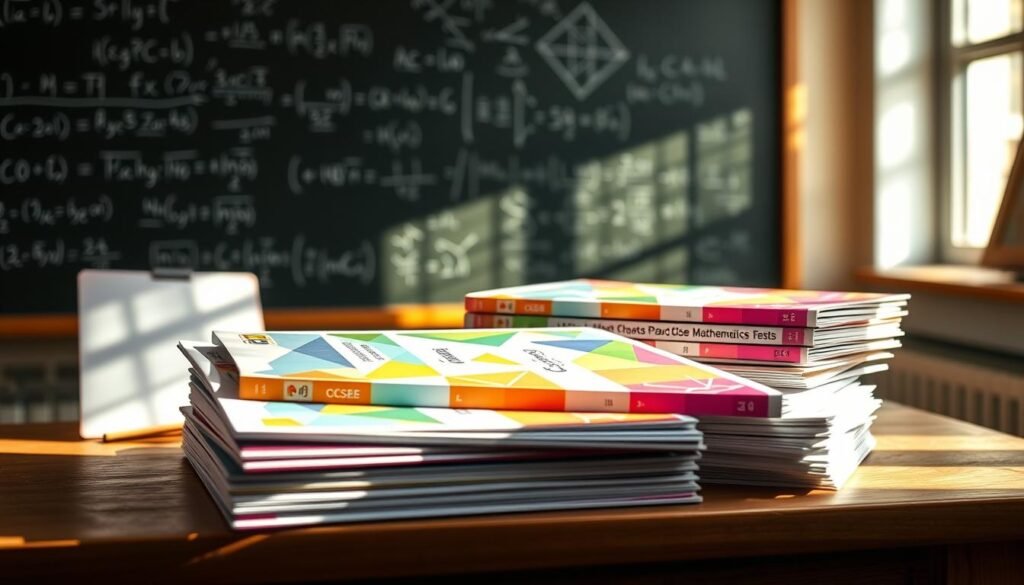
To excel in GCSE Maths, mastering practice tests is essential. Practice tests are a crucial component of your revision strategy, allowing you to assess your knowledge, identify areas for improvement, and build confidence in your exam technique.
How to Use Past Papers Effectively
Using past papers effectively is a key aspect of GCSE Maths revision. Start by obtaining a range of past papers and mark schemes from your exam board.
Analyzing Mark Schemes
When practicing with past papers, it’s essential to analyze mark schemes carefully. Understand the marking criteria and use it to improve your answers.
Recreating Exam Conditions
To get the most out of practice papers, recreate exam conditions as closely as possible. Sit in a quiet room, set a timer, and avoid checking your answers until you’ve completed the paper.
Timed Practice Strategies
Timed practice is vital for GCSE Maths success. Regularly practicing under timed conditions helps you manage your time effectively during the actual exam.
Analyzing Your Performance and Improving
After completing a practice test, analyze your performance thoroughly. Identify topics you struggled with and focus your revision on those areas. Use this analysis to adjust your study plan and improve your weaknesses.
By following these strategies and consistently practicing with GCSE Maths practice tests, you’ll be well-prepared for your exams and can achieve your best possible grade.
Overcoming Common GCSE Maths Challenges
GCSE Maths can be daunting, and many students face common obstacles that, with the right strategies, can be overcome. As you navigate your GCSE Maths journey, understanding these challenges and how to tackle them is crucial for success.
Dealing with Math Anxiety
Math anxiety is a common issue that can significantly impact your performance. To overcome it, practice relaxation techniques such as deep breathing or visualization. Breaking down problems into smaller, manageable steps can also help reduce anxiety.
Tackling Difficult Topics
Some topics in GCSE Maths can be particularly challenging. To tackle these, focus on understanding the underlying concepts rather than just memorizing formulas. Utilize online resources and study guides that provide detailed explanations and practice questions.
Finding Help When You’re Stuck
It’s common to get stuck on certain topics or questions. When this happens, seeking help is crucial. You can find support through various channels.
Working with Tutors and Teachers
Your teachers and tutors are valuable resources. Don’t hesitate to ask them for help. They can provide personalized guidance and clarify difficult concepts.
Peer Study Groups
Joining a study group can be beneficial. You can collaborate with peers, share resources, and learn from one another’s strengths and weaknesses.
| Challenge | Strategy | Resources |
|---|---|---|
| Math Anxiety | Relaxation Techniques, Break Down Problems | Mindfulness Apps, Study Guides |
| Difficult Topics | Understand Concepts, Practice Questions | Online Tutorials, Revision Guides |
| Getting Stuck | Seek Help, Peer Study Groups | Tutors, Teachers, Online Forums |
Final Revision Strategies for GCSE Maths Exams
As you approach your GCSE Maths exams in 2025, it’s crucial to have a solid revision strategy in place. Effective gcse math revision techniques can make a significant difference in your performance. In this section, we’ll explore how to plan your revision in the final stages before the exam.
One Month Before the Exam
One month before the exam, you should start by reviewing your notes and organizing your study materials. Focus on identifying weak areas where you need improvement. Create a study plan that allocates more time to challenging topics while still reviewing stronger areas.
One Week Before the Exam
In the final week, intensive practice is key. Use past papers and practice tests to simulate the exam experience. This will help you get comfortable with the exam format and time constraints. Review your mistakes carefully to avoid repeating them.
The Day Before and Exam Day Tips
The day before the exam, avoid cramming new information. Instead, focus on relaxing and reviewing key formulas. On exam day, make sure you’re well-rested and have eaten a nutritious meal.
Mental Preparation Techniques
Use positive self-talk and visualization techniques to boost your confidence. Take deep breaths to calm your nerves before the exam.
Essential Items to Bring
Ensure you have all necessary items, including your exam admission ticket, pens, pencils, and a calculator. Double-check the exam instructions to avoid any last-minute issues.
Conclusion: Your Path to GCSE Maths Success in2025
As you prepare for your GCSE Maths exams in 2025, it’s essential to stay focused and committed to your study plan. By following the GCSE Maths study guide 2025 outlined in this article, you can ensure a well-structured approach to your studies.
Effective study techniques, such as active learning strategies and problem-solving approaches, will help you master key concepts and build confidence in your abilities. Utilize the best GCSE math study guide and resources available, including recommended textbooks, online learning platforms, and YouTube channels, to supplement your learning.
With consistent practice and review, you’ll be well-prepared to tackle the challenges of the GCSE Maths exam. Remember, seeking gcse math help when needed is crucial to overcoming obstacles and achieving your goals. Stay committed, and you’ll be on your path to success in GCSE Maths 2025.
FAQ
What is the best way to start preparing for the GCSE Maths exam in 2025?
Start by assessing your current knowledge and skills, setting realistic study goals, and developing a weekly study schedule that balances different math topics and includes regular review sessions using a GCSE Maths study guide 2025.
What are the key changes in the 2025 GCSE Maths syllabus?
The key changes in the 2025 GCSE Maths syllabus include updates to the curriculum, examination structure, and grading system, which are detailed in the Understanding the GCSE Maths Curriculum for 2025 section of this guide, a valuable resource for GCSE math prep tips.
How can I effectively use past papers for GCSE Maths practice?
To effectively use past papers, recreate exam conditions, time yourself, and analyze your performance using mark schemes to identify areas for improvement, a technique emphasized in mastering GCSE Maths practice tests.
What are some effective study techniques for GCSE Maths success?
Effective study techniques include active learning strategies, problem-solving approaches, and memory techniques for mathematical formulas, all of which are covered in the Effective Study Techniques for GCSE Maths Success section, providing valuable gcse math revision techniques.
How can I overcome math anxiety while preparing for GCSE Maths?
To overcome math anxiety, practice relaxation techniques, break down complex problems into manageable steps, and seek help from tutors, teachers, or peer study groups, strategies discussed in overcoming common GCSE Maths challenges.
What are the most essential GCSE Maths topics to master?
The essential GCSE Maths topics include number and algebra fundamentals, geometry and measures, statistics, and probability, as well as higher tier-specific topics, all of which are outlined in the Essential GCSE Maths Topics You Must Master section, a crucial part of any gcse maths study guide.
What are some top GCSE Maths resources and tools for 2025?
Top resources include recommended textbooks, online learning platforms, interactive practice websites, video tutorials, and free resources like YouTube channels, all of which are highlighted in the Top GCSE Maths Resources and Tools for 2025 section, providing excellent gcse math resources.
How should I plan my revision in the month leading up to the GCSE Maths exam?
Plan your revision by focusing on weak areas, practicing consistently, and using a combination of study techniques and resources, as advised in the Final Revision Strategies for GCSE Maths Exams section, which offers valuable gcse math exam strategies.
What should I do on the day before and the day of the GCSE Maths exam?
On the day before, review key formulas and concepts lightly, and on the day of the exam, arrive early, stay calm, and follow the exam instructions carefully, tips provided in the Final Revision Strategies for GCSE Maths Exams section.
How can I make the most of online resources for GCSE Maths?
To make the most of online resources, use a variety of platforms, apps, and websites to practice different topics, and engage with video tutorials and interactive materials, as suggested in the Top GCSE Maths Resources and Tools for 2025 section, which includes gcse math online resources.
Are there any specific tips for tackling difficult GCSE Maths topics?
Yes, break down complex topics into simpler components, practice regularly, and seek help when needed, strategies that are detailed in the Overcoming Common GCSE Maths Challenges section, offering help with gcse math.
